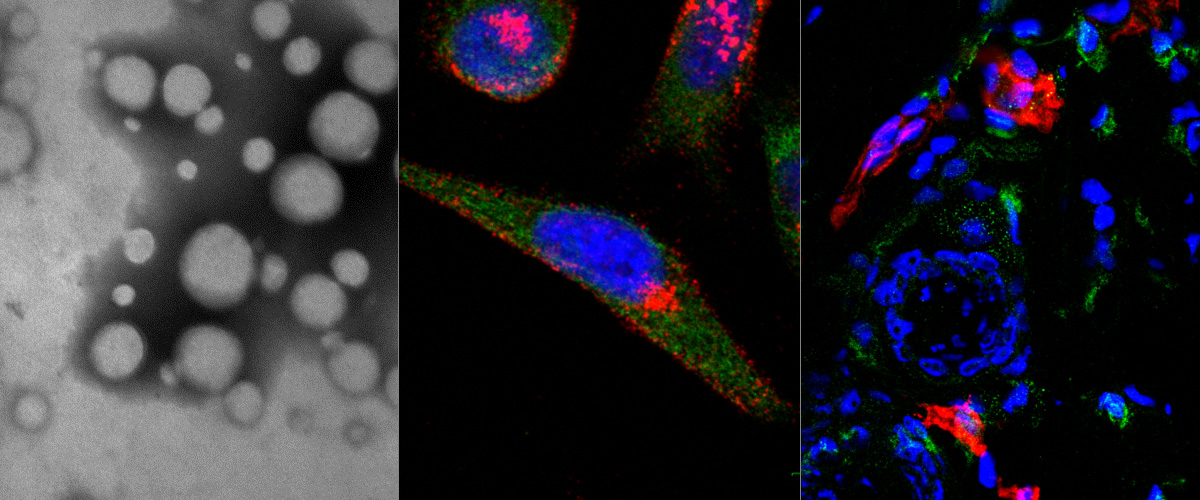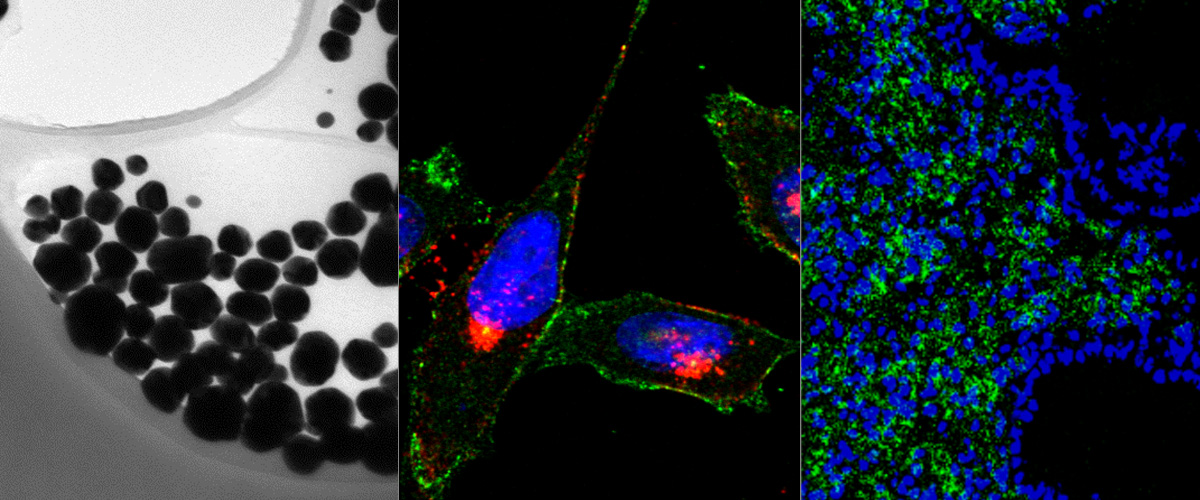https://www.ncbi.nlm.nih.gov/pubmed/31255690
Abstract
Tumor-selective drug conjugates can potentially improve the prognosis for patients affected by glioblastoma (GBM) - the most common and malignant type of brain cancer with no effective cure. Here we evaluated a novel tumor penetrating peptide that targets cell surface p32, LinTT1 (AKRGARSTA), as a GBM targeting ligand for systemically-administered nanoparticles. LinTT1-functionalization increased tumor homing of iron oxide nanoworms (NWs) across a panel of five GBM models ranging from infiltratively-disseminating to angiogenic phenotypes. LinTT1-NWs homed to CD31-positive tumor blood vessels, including to transdifferentiated endothelial cells, and showed co-localization with tumor macrophages and lymphatic vessels. LinTT1 functionalization also resulted in increased GBM delivery of other types of systemically-administered nanoparticles: silver nanoparticles and albumin-paclitaxel nanoparticles. Finally, LinTT1-guided proapoptotic NWs exerted strong anti-glioma activity in two models of GBM, including doubling the lifespan of the mice in an aggressive orthotopic stem cell-like GBM that recapitulates the histological hallmarks of human GBM. Our study suggests that LinTT1 targeting strategy can be used to increase GBM uptake of systemic nanoparticles for improved imaging and therapy.




